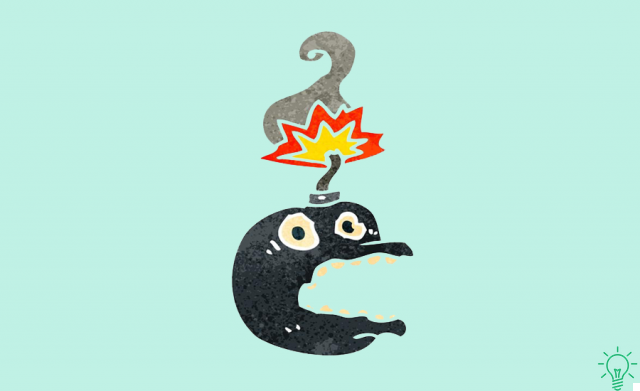
Oscar Wilde said that a little sincerity is a dangerous thing but too much sincerity is absolutely fatal. Undoubtedly, there are great differences between being honest and committing "sincericide", a word that perhaps the language academy does not like but perfectly reflects the behavior of those who could be classified as "truth kamikaze". There is a big difference between telling the truth and using it to do harm, both to oneself and to others.
A legend about the boundaries between sincerity and sincericide
It was the golden age of Spain when in an inn in Madrid, warmed by the contents of some glasses, some individuals launched into an interesting bet. Someone must have dared to tell the queen that she was crippled.
Donna Isabel, Queen of Spain, was famous for her beauty, but a childhood illness had left her with her left leg semi-paralyzed. That flaw was evident as she walked and the queen hated people mentioning it.
It is said that Francisco de Quevedo, a court knight famous for his verses and his disputes and adventures, accepted the bet. To everyone's amazement, he appeared before the queen with two bunches of flowers and said with a certain aplomb: "between the white carnation and the red rose, Her Majesty is lame ..."
I don't know if the anecdote is authentic, but the truth is that it shows us the difference between telling the truth and committing sincericide, it speaks to us of the importance of choosing words. But in life we don't always have this subtlety and wit, so when we use the sword of truth we can do a lot of damage.
The profile of the sincericide
We have all likely acted as sincericides on some occasions. However, if blatantly speaking the truth, thereby hurting others, becomes our normal behavior, we should ask ourselves why we have become suicide bombers.
On many occasions this suicidal attachment to the truth is the expression of something much deeper, which may be the desire to "punish" the other or even oneself. In fact, the sincericide is usually a person who believes that he is being treated unfairly, believes that he is not valued enough or that he is being trampled on. In these cases he uses the truth as a "legitimate" weapon to attack the world, which has deeply disillusioned him.
However, there are also what we could define as "born sincericides", they are those who believe they are the only ones who are right and their love for the truth allows them to overlook any kind of social subtlety. They believe that the fact that it is a "truth as clear as sunlight" is reason enough not to make useless rounds of paole. After all, these people are convinced that they are the only ones to be sincere and that all the others lie, even if only to "adorn" the truth and take away part of its impact.
The dichotomy of the sincericide
The sincericides start from an erroneous belief because they think that "being sincere" is equivalent to "being good". These people believe that being "straight forward", "saying things as they are" and "not beating around the bush" is an expression of their consistency, but in reality given the damage they cause with their sincerity, their actions reveal a destructive intent, which it means that they have a double standard since they do not act in agreement with how they say they are.
For this reason, the sincericide usually hides the impossibility of being empathetic and putting himself in the place of the interlocutor. In fact, one of the favorite phrases of sincericides is: "I tell you because I would like to be told". This shows that the sincericide usually decides and acts based on his criterion, without taking into account what his interlocutor wants or needs. The fact that a truth is good for us does not mean that it is good for others as well.
3 conditions in which telling the truth is not useful
Sincericide is sincerity without prudence, the ascertainment of an objective reality that is realized without a pinch of goodness or beauty. This kind of truth becomes a weapon that causes damage. In fact, there are some situations in which it is important to pay particular attention when we want to tell a truth since it could be more harmful than useful.
1. When the truth brings no value. In the case of the queen, who was perfectly aware of her condition, reminding him of the truth only added useless information that caused him further discomfort. Therefore, when the person is aware of the truth, and it makes him suffer, it is not necessary to remind him because it would be like putting his finger in the sore.
2. When the person is not ready to face the truth. There are situations in which the person is not ready to hear the truth, therefore this could cause him enormous damage on a psychological level. In fact, one of the psychologist's tasks is precisely to prepare the person throughout the therapy by offering him the necessary tools to face certain truths.
3. When the time isn't right. Often the truth is harsh, so for the person to take advantage of it, it is important to say it at the right time. If we tell a truth at an inopportune moment, such as in the middle of a heated argument, the person will most likely feel hurt and become defensive.
How to avoid sincericide without hiding the truth?
The truth is always better than the lie, but there are cases where it is necessary to manipulate it so that it does not cause unnecessary harm. There is no beauty or goodness in a painful and poorly expressed truth.
But this does not mean that we must necessarily lie, but choose the words wisely, as if we were a bomb squad intent on defusing a bomb. If we cut that person the wrong way, the "truth" will do more harm than a lie. Therefore, it is all about evaluating the situation carefully and acting with caution.
It is not enough to "be direct and say things as they are" it is important to be prudent, put yourself in the other person's shoes and choose the right moment when our interlocutor is more receptive to the message and can use it to the fullest.
After all, the intention is not to drop a bomb and escape for the person to be saved as best he can, but for the truth to help him improve and move forward. And this will only happen if the person is receptive to our words.
- 27


























